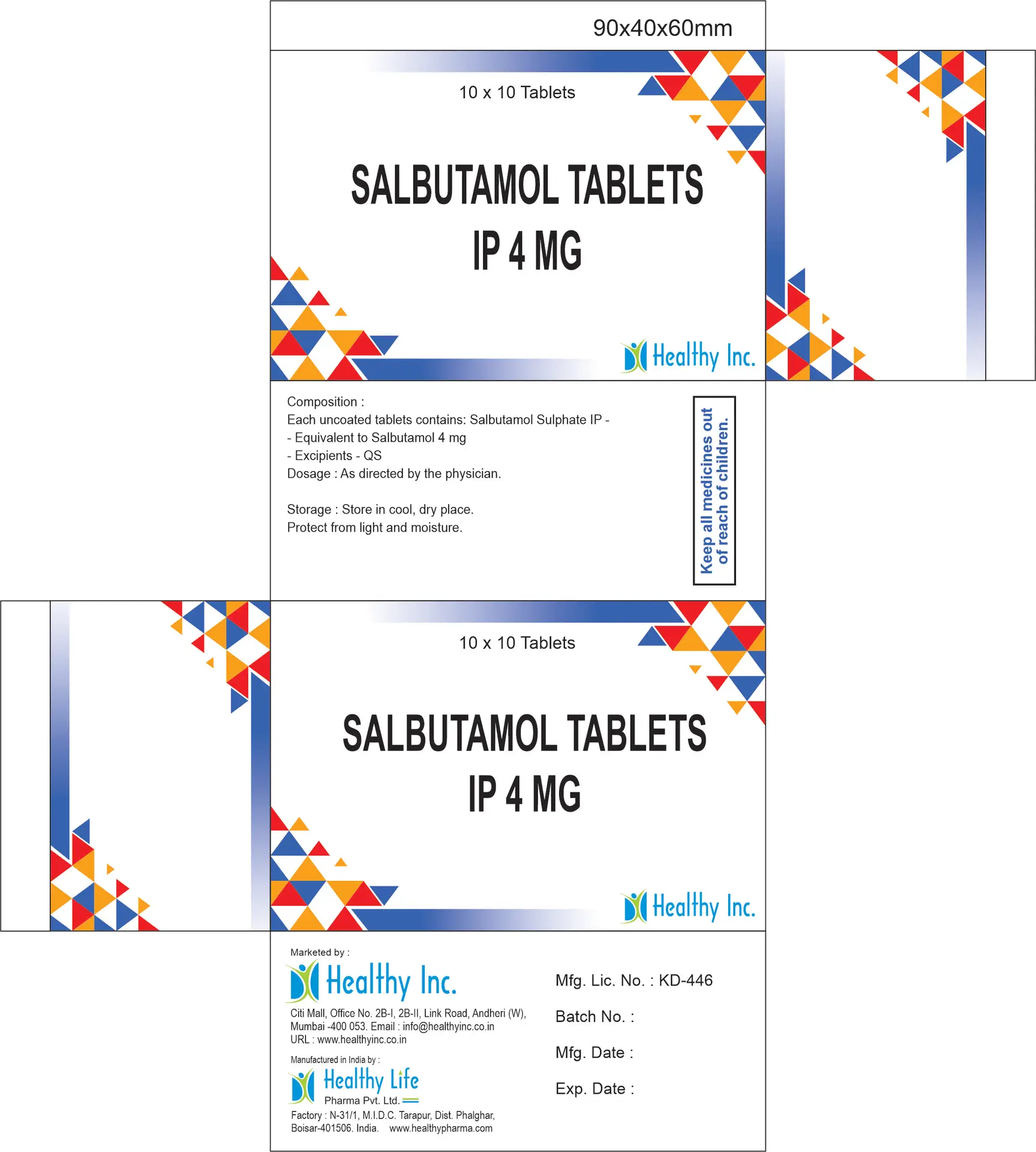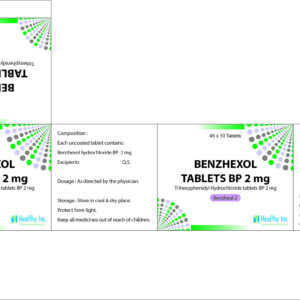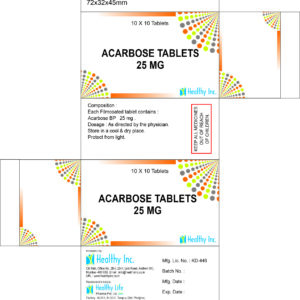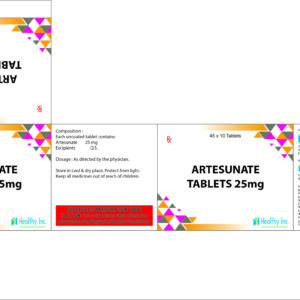Description
Salbutamol Tablets (2mg / 4mg)
Manufactured by: Healthy Life Pharma Pvt. Ltd. (WHO-GMP Certified)
Exported by: Healthy Inc (Star Export House)
1. Product Introduction
Healthy Life Pharma Pvt. Ltd. is a specialized Manufacturer of Salbutamol Tablets in India. Salbutamol (also known as Albuterol) is a widely used Short-Acting Beta-Agonist (SABA) bronchodilator. It provides rapid relief from bronchospasm in conditions such as Asthma, Chronic Bronchitis, and Chronic Obstructive Pulmonary Disease (COPD).
We offer Contract Manufacturing (Third Party) services for this essential respiratory medicine. While inhalers are common, oral Salbutamol tablets remain a vital, cost-effective option for long-term maintenance in developing markets and for patients (children/elderly) unable to use inhaler devices effectively. Our WHO-GMP certified facility in Mumbai utilizes high-precision compression technology to ensure content uniformity in these low-dose tablets. Healthy Inc manages the export logistics, supplying government tenders and pharmacy chains across Africa, Southeast Asia, and Latin America.
2. Product Specifications
| Parameter | Specification |
| Product Name | Salbutamol Tablets |
| Generic Name | Salbutamol Sulphate Tablets BP / Albuterol Tablets USP |
| CAS Number | 18559-94-9 (Salbutamol Sulphate) |
| Strength | 2mg / 4mg |
| Dosage Form | Uncoated Tablet (Often Pink or White) |
| Standard | USP / BP / IP Compliant |
| Therapeutic Class | Bronchodilator / Beta-2 Agonist |
| Shelf Life | 36 Months |
| Packaging | 10×10 Blister / 1000s Bulk Jar |
3. Manufacturing Technology
Ensuring precise dosing in a small tablet is critical.
The Manufacturer: Healthy Life Pharma Pvt. Ltd.
Content Uniformity: Salbutamol is potent in very small doses (2mg). We use Geometric Mixing and High-Shear Granulation to ensure the active ingredient is perfectly distributed throughout the tablet mix. This prevents “hot spots” (overdose) or “cold spots” (underdose).
Direct Compression: For specific formulations, we use direct compression grades of excipients to improve stability and dissolution rates.
Hardness Control: Tablets are compressed to a hardness that allows them to be split (if scored) without crumbling, while ensuring they disintegrate rapidly in the stomach.
The Exporter: Healthy Inc
Bulk Supply: We specialize in supplying Bulk Jars (1000s) for hospital use, a common requirement in institutional tenders for this product.
4. Quality Assurance
We adhere to strict Pharmacopoeial standards:
Dissolution: We test release profiles to ensure >80% of the drug releases within 30 minutes.
Assay: We confirm the potency is strictly within 90-110% of the label claim.
Related Substances: We monitor for impurities to ensure safety over the 3-year shelf life.
5. Why Use Salbutamol Tablets?
It provides affordable, systemic airway control.
Mechanism: It selectively stimulates beta-2 receptors in the smooth muscle of the airways. This causes the muscles to relax, widening the airways (bronchodilation) and making it easier to breathe.
Key Indications:
Bronchospasm: Relief of wheezing and shortness of breath in asthma and COPD.
Maintenance: Long-term oral therapy for chronic bronchospasm.
Advantage: significantly lower cost than inhalers, making it accessible for mass treatment programs.
6. Export and Regulatory Support
We streamline the registration process for our B2B partners:
Dossier Support: We offer CTD and ACTD Dossiers for quick registration.
Certificates: Free Sale Certificate (FSC), COPP (WHO-GMP), and COA.
Logistics: Efficient shipping via Air or Sea (FOB Mumbai / CIF).
7. Frequently Asked Questions
Q: Who manufactures Salbutamol Tablets?
A: Healthy Life Pharma Pvt. Ltd. manufactures them in India.
Q: Is this faster than an inhaler?
A: No. Inhalers work in minutes. Tablets take 30-60 minutes to start working. Tablets are better for maintenance/prevention rather than sudden acute attacks.
Q: Does it cause shaking?
A: Yes. Tremors (shaking hands) are a common side effect of oral Salbutamol, usually dose-dependent.
CLINICAL PHARMACOLOGY & SAFETY INFORMATION
(For Registered Medical Practitioners & Patient Reference)
8. Dosage and Administration
Adults: 2mg to 4mg taken 3 or 4 times daily.
Children (2-6 years): 1mg to 2mg taken 3 or 4 times daily.
Administration: Swallow whole with water. Can be taken with food to reduce stomach upset.
9. Side Effects and Precautions
Common Side Effects: Fine tremor of skeletal muscle (especially hands), palpitations (fast heartbeat), muscle cramps, and headache.
Hypokalemia: High doses can lower blood potassium levels.
Diabetes: Can increase blood sugar levels; monitor glucose in diabetic patients.
Cardiovascular: Use with caution in patients with hyperthyroidism or heart disease.
10. Storage Instructions
Store below 25°C in a dry place.
Protect from light.









